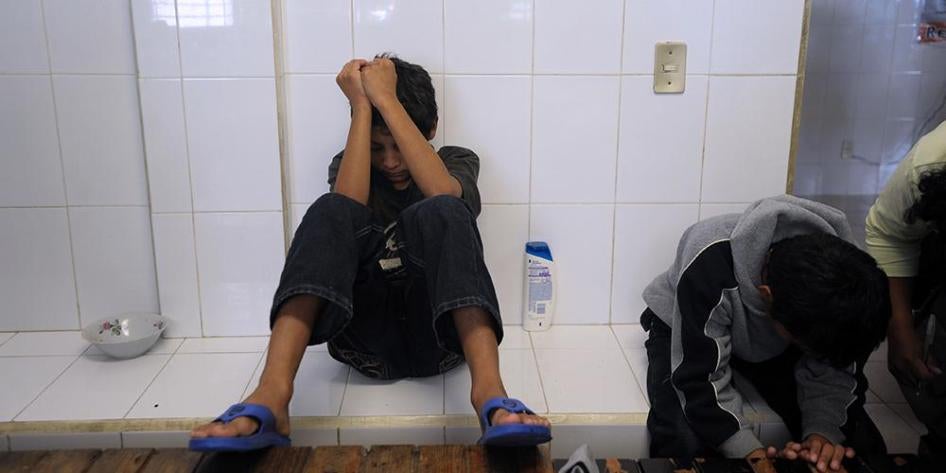Call me cynical, but I rarely expect a speech at a summit of world leaders to be even slightly noteworthy. That went double, I assumed, for the UN and presidential refugee summits in New York last month, which were rightly criticised as a disappointment before they had even begun.
To my surprise, however, Mexico’s president, Enrique Peña Nieto, delivered an address that sounded as though he’d suddenly found his inner human rights advocate.
The speech was a shock because Peña Nieto’s presidency has been marked—and marred—by egregious missteps and unfulfilled promises on human rights. One infamous example is administration’s mishandling of the investigation of the disappearance of 43 Ayotzinapa Normal School students as they prepared to travel to a demonstration in Mexico City. Ayotzinapa is by no means unique; the Peña Nieto government has failed to effectively investigate countless other cases of enforced disappearances and other abuses by security forces over the past decade. Tlatlaya, Tanhuato, Apatzigan—the list goes on, each place name shorthand for scenes of shocking brutality.
When called on this dismal record, the Peña Nieto administration has attacked the messenger—even respected authorities such as the UN special rapporteur on torture.
So how did Peña Nieto stand out at the summits?
Unlike many world leaders, who used the summits to call for a retreat from existing refugee protections, Peña Nieto took a strong stand for safeguarding the rights of refugees and migrants. He announced that Mexico will strengthen its refugee recognition procedures and will “develop alternatives to immigration detention for asylum seekers, particularly children.”
These would be very positive initiatives, if in fact he’s serious about them. We have every reason to be sceptical, because they’d be a substantial departure from established practice.
The Mexican government estimates that some 400,000 people enter Mexico irregularly each year. Many are Central Americans, fleeing persecution and violence in El Salvador, Honduras, and Guatemala, as shown most recently by a new Amnesty International report. Most of those who come into contact with immigration authorities are quickly deported, with little or no effort to assess whether they need international protection.
Take the treatment of unaccompanied children, a group the president focused on in his address.
Mexican immigration authorities apprehended more than 20,000 unaccompanied children from these three countries in 2015 and 7,800 in the first half of 2016, detaining the vast majority. The Office of the United Nations High Commissioner for Refugees has estimated that as many as half have strong cases for asylum.
Mexico’s refugee agency, the Mexican Commission for Refugee Assistance (Comisión Mexicana de Ayuda a Refugiados, COMAR), recognized just 44 unaccompanied children as refugees in 2015 and 48 in the first six months of 2016. That’s less than 1 percent of the total number of unaccompanied children apprehended in each of these periods.
As I found in a year-long investigation for Human Rights Watch, one important factor that explains this discrepancy is Mexico’s immigration department’s enforcement-heavy culture, meaning that many agents are ill-equipped and disinclined to evaluate children’s protection needs, instead focusing on detention and deportation.
The commitments Peña Nieto announced will address some of these shortcomings, if in fact they are carried out. In particular, any reduction in Mexico’s near-routine use of immigration detention for children will go a long way toward ensuring that those most in need of protection have effective access to it.
President Peña Nieto hit the right notes in his summit address. If his administration follows through on the vision he laid out, it could make a major difference in the lives of migrants fleeing violence in Central America. If not, it will be one more unfulfilled promise by a president who has so far failed to take many of his government’s human rights obligations seriously.










